The Massachusetts Port Authority saw record numbers of passengers in 2024 moving through Logan Airport and its cruise ship terminal in South Boston. The travel business, it seemed, had rebounded from its unprecedented lull during the COVID-19 pandemic.
Going into 2025, less than six months on the job, chief executive Rich Davey had every reason to be optimistic. But now, the national economy’s future has been thrown into turmoil.
So, Davey is telling his chief financial officer to be conservative in the upcoming budget for the fiscal year that begins in July. The Trump administration’s ever-changing global trade proposals could threaten cargo that arrives via container ships at the Conley Terminal in South Boston, and possibly alienate many travelers. Then there are Trump’s attacks on higher education and health care, bedrocks of Boston’s economy. Hanging over it all: the increasing likelihood of a recession, which would curb air travel should it come to pass.
“We have to be prudent but we’re not panicking,” Davey said. “We feel reasonably confident that for the first half of 2025, travel should remain reasonably strong. It remains to be seen in the back half of the year whether there will be a softening.”
So what’s keeping Davey up at night? Here are a few crucial factors.
Cargo ship fees
The office of the United States trade representative floated the idea in January of charging massive new fees at each stopover for all Chinese-made ships, in part to punish China and revive the now-moribund US commercial shipbuilding industry. Under the proposal, fees for each stopover at the Conley Terminal could range up to $1.5 million.
Davey mentioned these fees first when asked at an Associated Industries of Massachusetts event on Tuesday how Trump’s policies might affect freight coming into Boston. Data provided by Massport show that 21 Chinese-made vessels stopped at Conley last year, representing one-fifth of the market share, and considerably less than the industry average. But Davey’s still worried, especially after the port authority spent hundreds of millions of dollars to buy new cranes and dredge a deeper shipping channel in Boston Harbor during the past decade. He told AIM members he fears the new fees could prompt some shippers to skip Boston entirely in favor of the Port of New York and New Jersey, endangering the jobs of many of the 300 longshoremen who work at Conley.
“It’s entirely possible that ocean carriers might say ‘Forget it, I’m not calling Boston and paying $1 million, I’ll just stop in New York and pay the fee,‘” Davey said in an interview.
The new fees could also drive up costs of goods to consumers, much like Trump’s tariffs would do. The industry pushback has been severe, and reports have started circulating that US Trade Representative Jamieson Greer will likely pare back the proposal.
“Bringing back more ship and maritime manufacturing to the United States, that’s good,” Davey said. “How you’re achieving it? Not so good.”
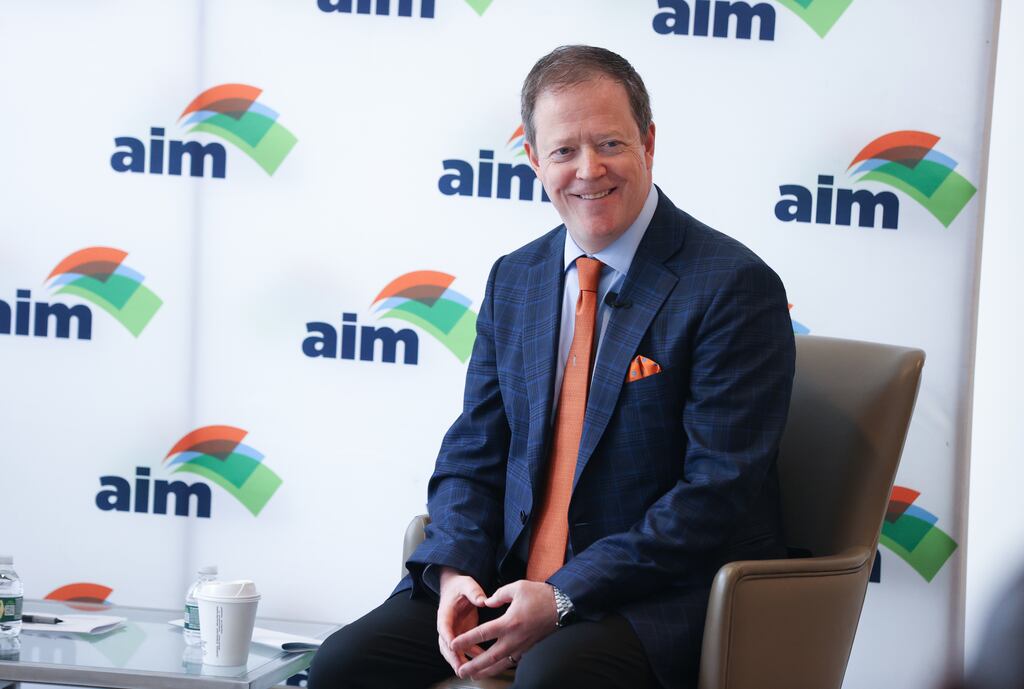
Tariffs
Unlike air travel, cargo volumes still haven’t returned to pre-pandemic levels at Conley. Trump’s tariffs won’t help. While Trump put many of the higher tariffs on pause on Wednesday, most trading partners still face a 10 percent tariff on goods coming into the United States. And for China, the minimum actually went up, to 145 percent. That’s bad news for Conley because more tonnage arrives from China than any other country, by far.
Davey seems particularly concerned about Trump’s threatened tariff of 200 percent on all wine and spirits imported from Europe. It’s a big business for Massport: If Trump follows through with his threat, that could affect the costs of 10 percent of products imported through Conley — another threat that could drive down shipping volumes there.
There’s also the fear that opening up trade wars with other countries (or other unfriendly policies) could deter their residents from choosing to vacation in the United States. Canada, a particular target of Trump’s, sent nearly 800,000 travelers through Logan last year. Davey said he hasn’t seen any decline at Logan yet, based on traffic so far this year.
Recession
Trump’s various trade battles are one reason why economists have said the likelihood of a recession has increased significantly in recent weeks. Davey said US airlines had previously predicted 8 percent growth in passengers and revenue for the year nationwide, but they’ve since cut that prediction in half. The future gets quite cloudy after July 1.
“The ones we’ve spoken to in the last couple of days have said they still expect a solid second quarter, April through June,” Davey said. “Beyond that, it’s hard to project. … There’s so much uncertainty. Major policy decisions are happening daily.”
Delta Air Lines, considered the busiest carrier at Logan, offered a somber prelude during its quarterly earnings call on Wednesday. Ed Bastian, the chief executive, said the airline started the year expecting strong growth. But now, he said, “Given broad economic uncertainty around global trade, growth has largely stalled.” As a result, Delta is keeping its jet capacity flat when compared with last year, with domestic main cabin seats actually declining.
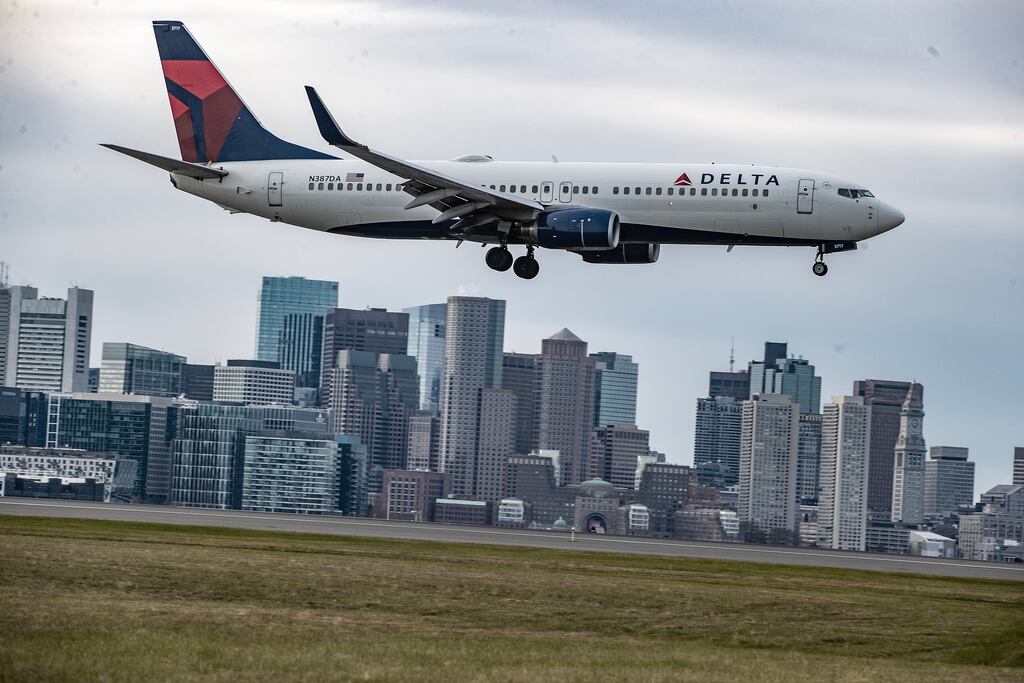
Federal funding cuts
One bright spot, if you can call it that: Massport’s budget doesn’t rely on federal dollars, so the massive cuts implemented in the federal government by Elon Musk and his ilk should only have a minimal impact on Massport operations. (The Federal Aviation Administration does support Logan with its air traffic controllers, but Davey believes the federal government might spend more to bolster those crews, not less.)
The port authority’s operations are essentially self-funded, largely from fees collected at Logan Airport. Davey said its annual revenues total $1.3 billion, while operating expenses are around $680 million; the rest is used to pay down debt or make capital improvements.
But federal cuts in other areas, such as research funding, could curb travel, particularly for a local economy that’s highly reliant on hospitals and universities.
“Our economy depends on students and universities and medical institutions,” Davey said. “That drives some of the travel in and out of Logan. To the extent that the administration has been focused on education grants and [Health and Human Services] grants, that could have a ripple effect on business travel.”
For now, Davey’s taking a wait-and-see attitude, and remains hopeful about Massport’s initial projection of 44.8 million passengers through Logan this year, up from 43.5 million in 2024. He’s asked chief financial officer John Pranckevicius to put together a prudent budget for the next fiscal year, and he’s prepared to delay capital projects if necessary, just like Massport did during the pandemic when air travel dropped by some 90 percent at Logan. Davey doesn’t expect anything as severe to occur now.
“The tumult and uncertainty today is not to anybody’s liking,” Davey added. “But it’s not like anything we had five years ago.”
Uber and Lyft will charge riders a fee of $5.50 each way to Logan, under tentative new agreement with Massport Massport executive tops ‘quasi-public’ agencies payroll with $640,000 in 2024As cruise ship business keeps growing, Massport will electrify South Boston port
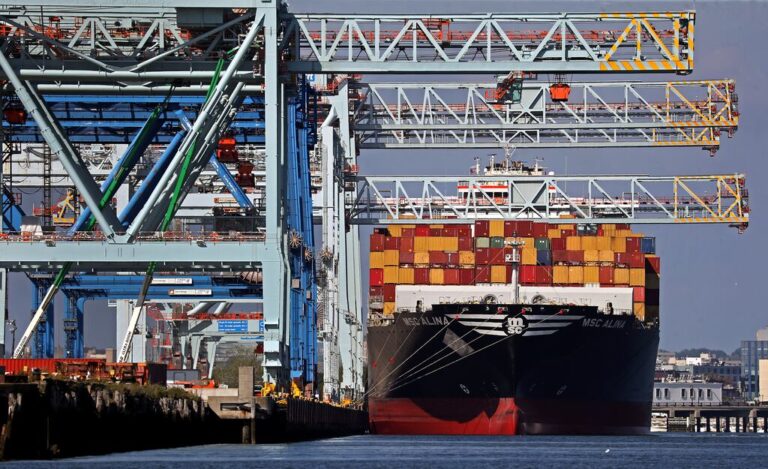

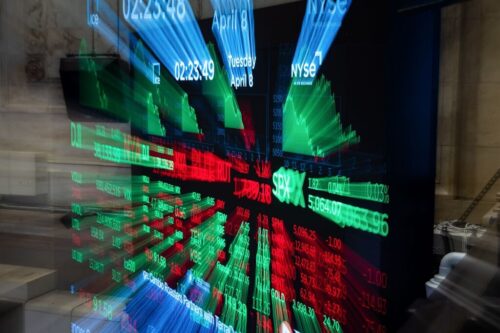
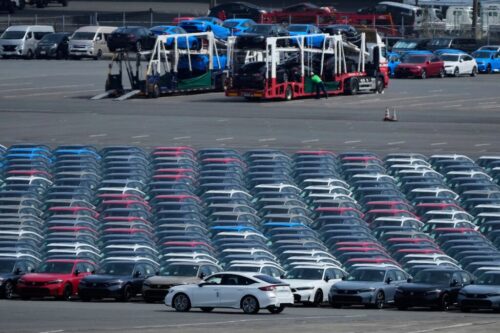
Comment count: